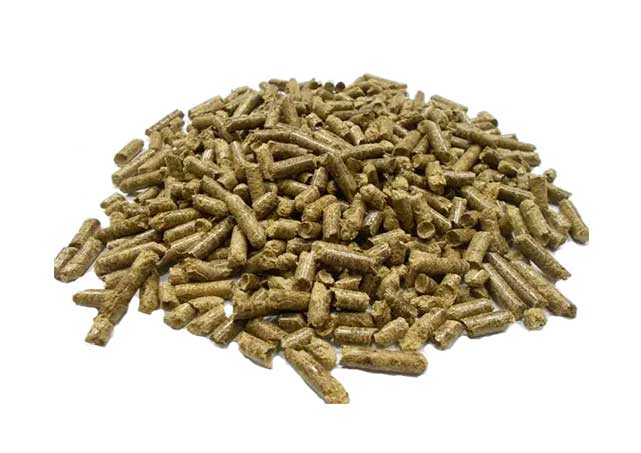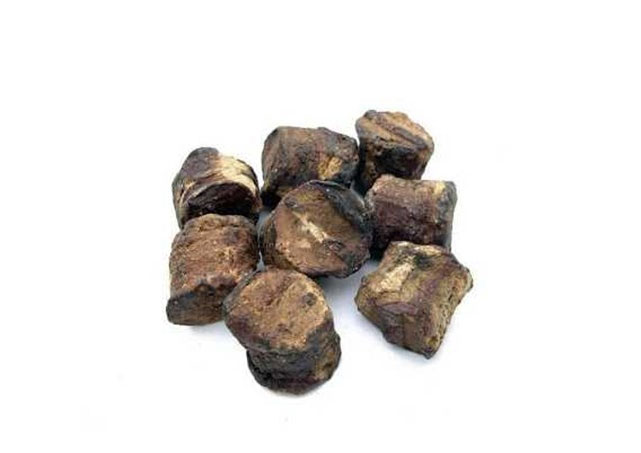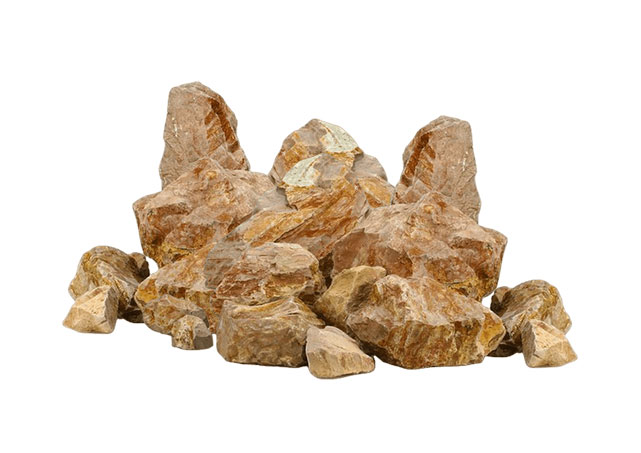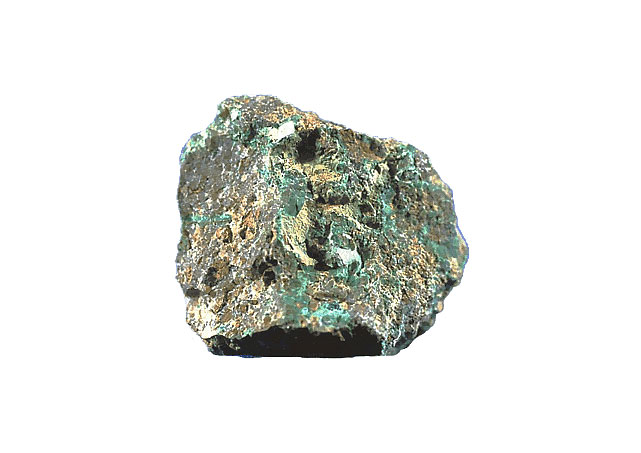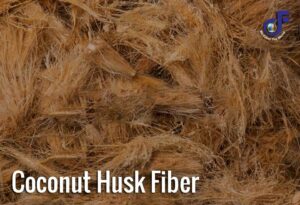Soil’s reputation as the most typical growing medium for countless crops has gradually diminished with the introduction of other growing medium substitutes. Khan et al. (2019) claimed that organic substances are below the critical level. Due to the quality deterioration in soil from several regions, most farmers are pushed to find another alternative substitute.
In recent years, coco peat block has gained a reputation as soil replacement among industrial-scale farming because it is capable of providing a better quality. When the tropical oil industries experienced rapid growth, the supply of coco coir bricks from coco peat manufacturers followed. The demand for wholesale coco peat also increased, creating a highly competitive market among coco peat manufacturers and coconut coir wholesale suppliers. It is estimated that the global market for coco peat block will grow at a CAGR (Compound Annual Growth Rate) of 8.1% from 2023 to 2028 (Expert Market Research, n.d.).
Advantages of Utilizing Coco Peat Bricks in the Agricultural Industries
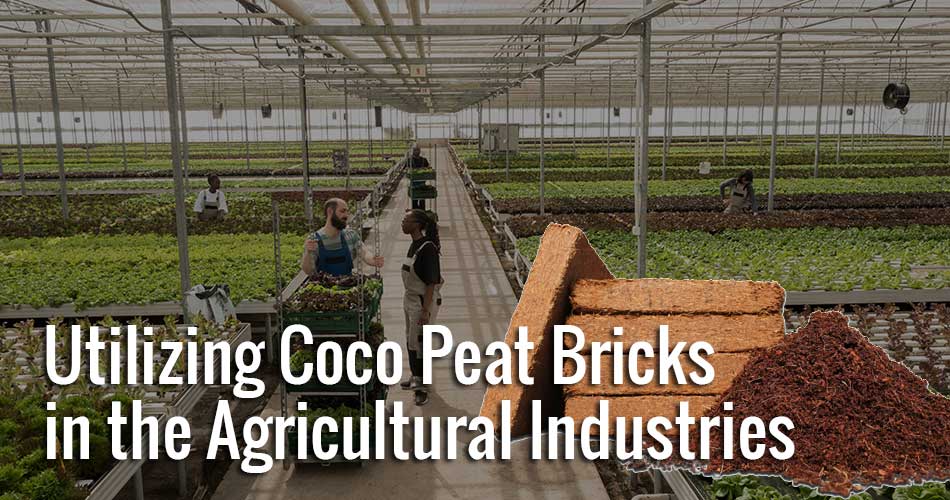
Today, coco peat soil is scientifically proven to stand out more than regular soil. A blend of soil and coco peat is capable to produce top-notch soil characteristics. Coco peat soil is well-known to perform better in terms of water-controlling substance, growth enhancer, and pest protection.
Water Controlling Capability
Based on Grow Organic (2022), an organic gardening supplies provider, the water absorption capability of coco peat soil allows the root part to preserve water and turns it into stock. Coco peat is capable of holding water 7.5 to 11 times its weight (Philippine Consulate in Vancouver, 2020). This allows the crops to have more water stock to utilize in the dry season or when it is necessary. In contrast to its water absorption capability, coco peat soil is also able to release excessive water to avoid the crops from waterlogged. So coco peat soil users can rest assured that their crops are capable of maintaining its water content through its growing medium.
Growth Booster for Crops
Coco peat soil is rich in nutrients that are capable of supporting the crops’ growth. Khan et al. (2019) explained that coco peat brick holds high amounts of lignin, cellulose, potassium, Fe (iron), Mn (Manganese), Zn (Zinc), and Cu (Copper) content. High concentration of nutrients plays an important role to increase the weight, height, and stems’ length. For the reason that the crop is able to absorb more nutrients from the soil (Philippine Consulate in Vancouver, 2020).
A Solid Protection from Pests and Weeds
Coco peat soil is able to perform as a natural weed barrier that clears weeds’ growth while boosting the crops’ growth at the same time. Ahmad et al. (2021), stated that weeds compete for nutrients with the crops and might cause unfavorable effects on the crops’ growth. When it gets more nutrients compared to the crops, the weeds’ population might drastically increase and threaten the rest of the crops. Agricultural Guide (2023), an online source of agricultural knowledge, stated that coco peat brick utilization in the plantation will restrict the weeds’ growth. Because coco peat does not let the weeds grow.
Coco peat soil is also resistant to bacteria and fungal growth. It is high in lignin content, which helps to support the development of favorable micro-organisms for growing crops.
How to Deal with the Disadvantages of Utilizing Coco Peat Block?
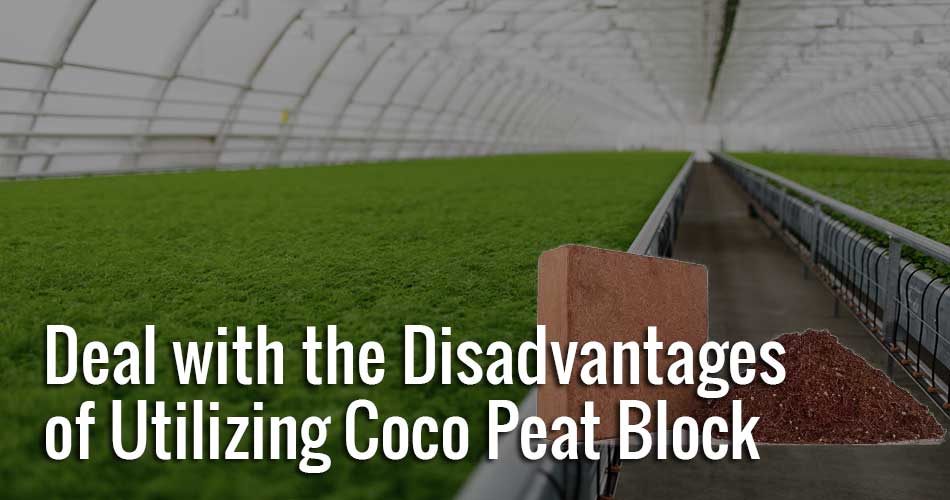
Besides its advantages, coco peat block also has its drawbacks. First, according to Hydroponic Way, a hydroponic farming resource provider, a high concentration of potassium in the coco coir bricks is highly possible to deteriorate the crops’ quality. Excessive potassium content might take up other nutrients (Southside Plants, 2021). However, potassium is crucial to support the crops’ growth, only if it is utilized in acceptable amounts (University of Minnesota Extension, n.d.). A way to resolve this issue is to blend the soil with a limited amount of coco peat soil. Just make sure the coco peat soil is not more than 40% of the total blend.
Second, maintaining the moisture level of coco coir bricks is also a challenge. Although it is a good water controller substance, coco peat bricks might lose its moisture content and turn dry without regular watering. Based on this reason, it is crucial to check and water the coco peat bricks at regular intervals.
Last but not least, Washington State University (2018), listed that it is challenging to find the supply of coco peat bricks in bulk. So it is typically shipped overseas from a coco peat factory or coco peat supplier. To solve this issue, it is worth considering to build a direct partnership with a coco peat supplier that also owns a coco peat factory.
About PT. Jaffarindo International Indonesia - A Coco Peat Supplier & Coco Peat Factory
Beware of low-quality wholesale coco peat from unreliable coco peat manufacturers and coconut coir wholesale suppliers. It’s better if you can directly inspect the pre-shipping process. This includes the packaging process, custom clearance, and others. For this reason, independently importing wholesale coco peat from a direct-trade coco peat supplier is highly recommended.
Jaffarindo Palm Mas is an authorized coconut coir wholesale supplier that holds a private ownership of a coco peat factory. As a reliable coco peat supplier, we welcome our customers to visit our facility and directly inspect the production process. For over 20 years of experience, we help countless large-scale industries to import wholesale coco peat. Partner with us today and let us help you to source the highest quality coco coir bricks. To place your order, reach us at ptjaffarindo@gmail.com.






